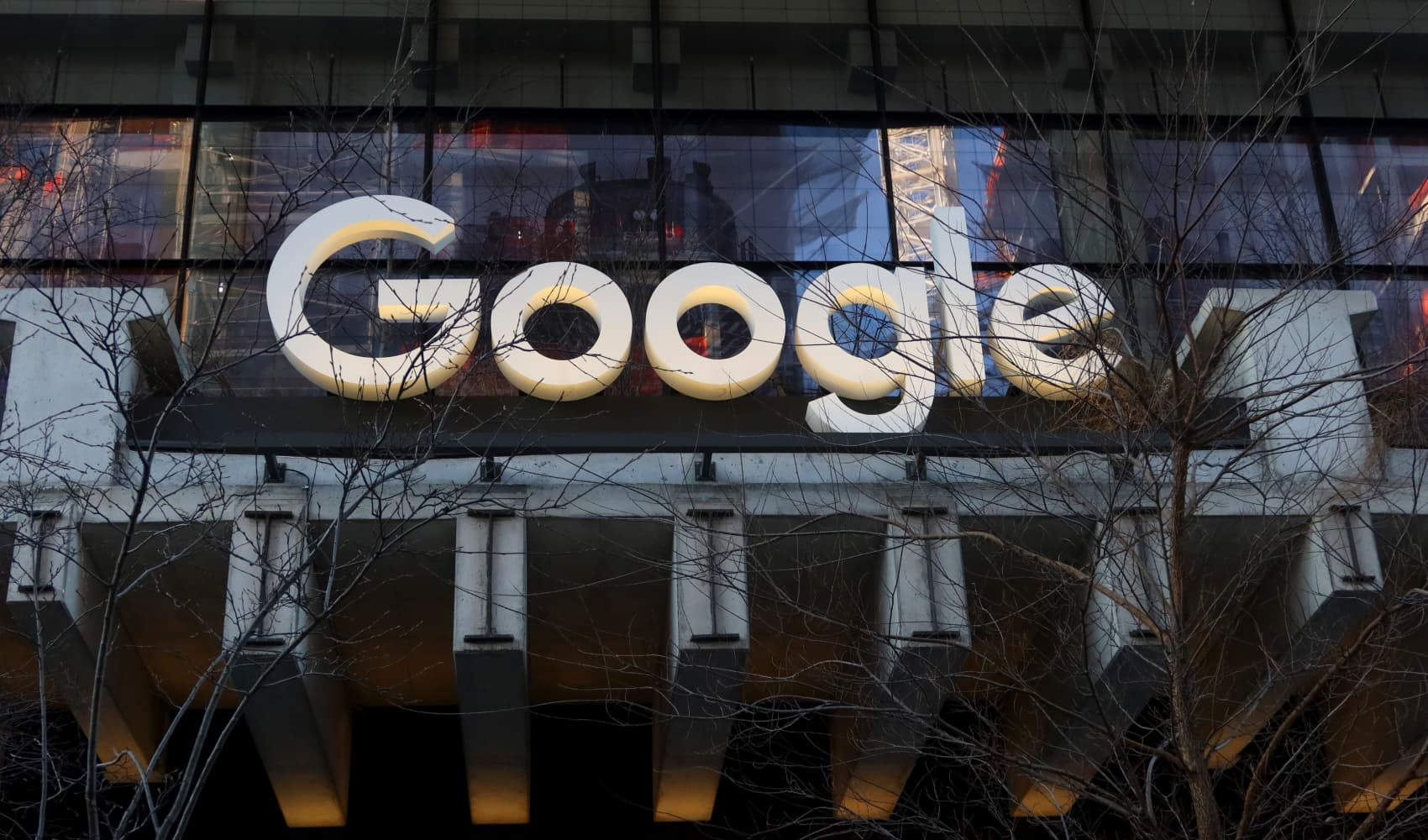Google Pays Texas! $1.4B Privacy Settlement Explained
Google's Billion-Dollar Privacy Blunder: Texas Wins Big!
Introduction: A Victory for Texas Data Privacy
Hold onto your hats, folks! The Lone Star State just scored a massive victory in the battle for data privacy. Google has agreed to cough up nearly $1.4 billion to Texas to settle allegations of unlawfully tracking and collecting users' private data. Yes, you read that right – billion with a "B"! This isn't just pocket change; it's a landmark settlement that sends a clear message: mess with Texans' data, and you'll pay the price. Attorney General Ken Paxton, a name Google probably isn't too fond of right now, spearheaded the lawsuit in 2022, and it's finally paid off. Let's dive into the details of this digital showdown.
The Allegations: What Did Google Do?
So, what exactly did Google allegedly do to warrant such a hefty fine? Well, according to the lawsuit, Google was accused of unlawfully tracking and collecting the private data of Texas residents without their explicit consent. Think of it like this: imagine someone secretly following you around, recording everything you do online and offline. Creepy, right? That's essentially what Google was accused of doing, only on a massive scale. They allegedly gathered data on everything from browsing history and location data to personal preferences and online habits. This data was then used to target users with personalized ads, generating massive profits for Google, but at the expense of Texans' privacy.
The Specifics of the Data Collection
What kind of data are we talking about? It's a broad range! Location data is a big one - every place you've been, every route you've taken. Browsing history, too - every website you've visited, every search you've made. Even things you might not think about, like which apps you use and how often, could have been collected. This massive amount of data, when combined, paints a very detailed picture of your life, and that's what's so concerning.
Ken Paxton's Fight: Champion of Privacy
Ken Paxton has positioned himself as a strong advocate for data privacy in Texas, and this settlement is a major feather in his cap. He’s not just going after Google. Just months before this Google settlement, Paxton's office secured a similar $1.4 billion settlement from Meta (Facebook and Instagram) for unauthorized use of biometric data. That's two massive tech giants brought to their knees by the same attorney general. Is Texas becoming the new data privacy battleground? It certainly seems that way!
The Size of the Settlement: A Wake-Up Call
Let's be clear: $1.4 billion is not chump change. It's a significant amount of money that will undoubtedly impact Google's bottom line. But more importantly, it sends a powerful message to other tech companies: data privacy is not a joke, and there will be serious consequences for those who violate it. This settlement isn't just about punishing Google; it's about setting a precedent and deterring other companies from engaging in similar practices.
How Does This Compare to Other Settlements?
This settlement ranks among the largest data privacy settlements in history. While exact comparisons can be tricky depending on the specifics of each case, the sheer size of this settlement underscores the severity of Google's alleged violations. It's a signal that regulators and attorneys general are increasingly willing to hold tech giants accountable for their data practices.
Where Does the Money Go? Helping Texans Harmed by Data Privacy Violations
So, what happens to all that money? Well, the details are still being finalized, but it's expected that the funds will be used to compensate Texans who were affected by Google's data collection practices. Think of it as restitution for the violation of their privacy. The specifics of the distribution process are still being worked out, but it's likely that a claims process will be established to allow eligible Texans to apply for compensation.
What This Means for Google: A Change in Behavior?
This settlement is more than just a financial hit for Google; it's a reputational one as well. It forces Google to re-evaluate its data collection practices and implement stronger privacy safeguards. Will Google change its behavior? Only time will tell, but this settlement certainly puts them on notice. It might encourage them to be more transparent with users about how their data is being collected and used.
User Privacy: Taking Control of Your Data
What can you do to protect your own data privacy in light of this news? Thankfully, there are steps you can take to reclaim control of your digital footprint. Become proactive about managing your privacy settings on Google and other platforms. Review your location history, ad settings, and data sharing preferences. Use privacy-focused browsers and search engines. Install browser extensions that block trackers. And most importantly, be mindful of the information you share online. Every click, every post, every search contributes to your digital profile.
Practical Steps to Protect Your Data
- Review your Google Privacy Settings regularly.
- Use a VPN (Virtual Private Network) to encrypt your internet traffic.
- Install ad blockers and privacy extensions in your browser.
- Be cautious about the information you share on social media.
- Read the privacy policies of websites and apps before using them.
The Future of Data Privacy: A Growing Concern
Data privacy is no longer a niche issue; it's a mainstream concern. As our lives become increasingly intertwined with technology, the importance of protecting our personal information will only continue to grow. Expect to see more lawsuits, more regulations, and more public scrutiny of tech companies' data practices. The era of unchecked data collection is coming to an end. This case is evidence that governments are taking notice and are willing to fight for their citizens' right to privacy.
The Role of Technology: Friend or Foe?
Technology can be a powerful tool for good, but it can also be used to exploit and manipulate. The key is to strike a balance between innovation and regulation. We need to embrace the benefits of technology while also safeguarding our privacy and protecting ourselves from its potential harms. It's a complex challenge, but one that we must address if we want to build a more just and equitable digital future.
Balancing Innovation and Privacy
Can we have both cutting-edge technology and robust privacy protections? Absolutely! But it requires a conscious effort from both tech companies and policymakers. Companies need to prioritize ethical data practices and be transparent with users about how their data is being used. Policymakers need to create clear and enforceable regulations that protect consumer privacy without stifling innovation. It's a delicate balancing act, but it's achievable.
Texas Leading the Charge: A Model for Other States?
Texas's success in holding Google and Meta accountable could serve as a model for other states looking to protect their residents' data privacy. By taking a proactive and aggressive approach, Texas has demonstrated that it's possible to stand up to even the most powerful tech companies. Will other states follow suit? Only time will tell, but Texas has certainly set the bar high.
The Public Reaction: Mixed Feelings
The news of the settlement has been met with mixed reactions. Some people are celebrating it as a victory for data privacy, while others are skeptical that it will lead to meaningful change. Some feel that the money is too little, too late, while others are hopeful that it will send a strong message to other tech companies. Regardless of your perspective, it's clear that this settlement is a significant moment in the ongoing debate over data privacy.
The Legal Implications: Setting a Precedent
This settlement has significant legal implications, as it sets a precedent for future data privacy cases. It demonstrates that tech companies can be held liable for unlawfully collecting and using users' data, even if they haven't directly caused any financial harm. This could open the door for more lawsuits and settlements in the future, forcing tech companies to take data privacy more seriously.
Google's Response: What Are They Saying?
As of now, Google has not released an official statement beyond acknowledging the settlement. It's likely they will emphasize their commitment to user privacy and highlight the steps they've taken to improve their data practices. However, actions speak louder than words, and the public will be watching closely to see if Google's behavior actually changes.
Conclusion: A Win, But the Fight Continues
The $1.4 billion settlement between Google and Texas is undoubtedly a major victory for data privacy. It sends a clear message that tech companies can be held accountable for their data practices and that users' privacy rights must be respected. However, the fight for data privacy is far from over. We must remain vigilant and continue to demand greater transparency and accountability from tech companies. By working together, we can create a digital future that protects our privacy and empowers us to control our own data.
Frequently Asked Questions
- What exactly does this settlement mean for the average Texan? It means that you might be eligible for compensation if Google collected your data without your consent. The specifics of the claims process are still being worked out, so stay tuned for updates.
- How can I find out if Google collected my data? It's difficult to know for sure, but you can review your Google account settings and activity history. Pay close attention to your location history, ad settings, and data sharing preferences.
- Will this settlement change how Google operates in the future? It's too early to say for sure, but it should encourage Google to be more transparent about its data collection practices and to implement stronger privacy safeguards.
- Is this settlement enough to deter other tech companies from violating data privacy laws? It's a good start, but more needs to be done. We need stronger regulations, stricter enforcement, and a greater public awareness of data privacy issues.
- What other steps can I take to protect my data privacy online? Use strong passwords, enable two-factor authentication, use a VPN, install ad blockers, and be mindful of the information you share online.

